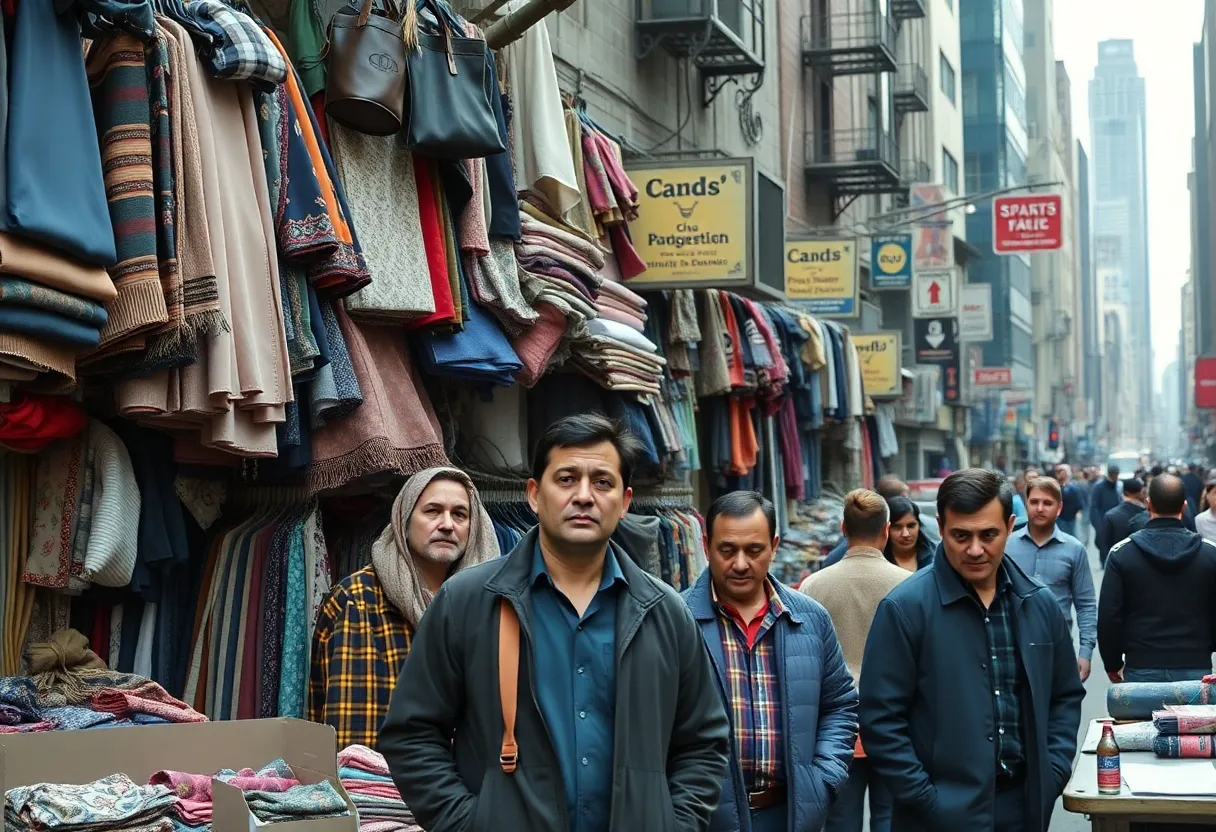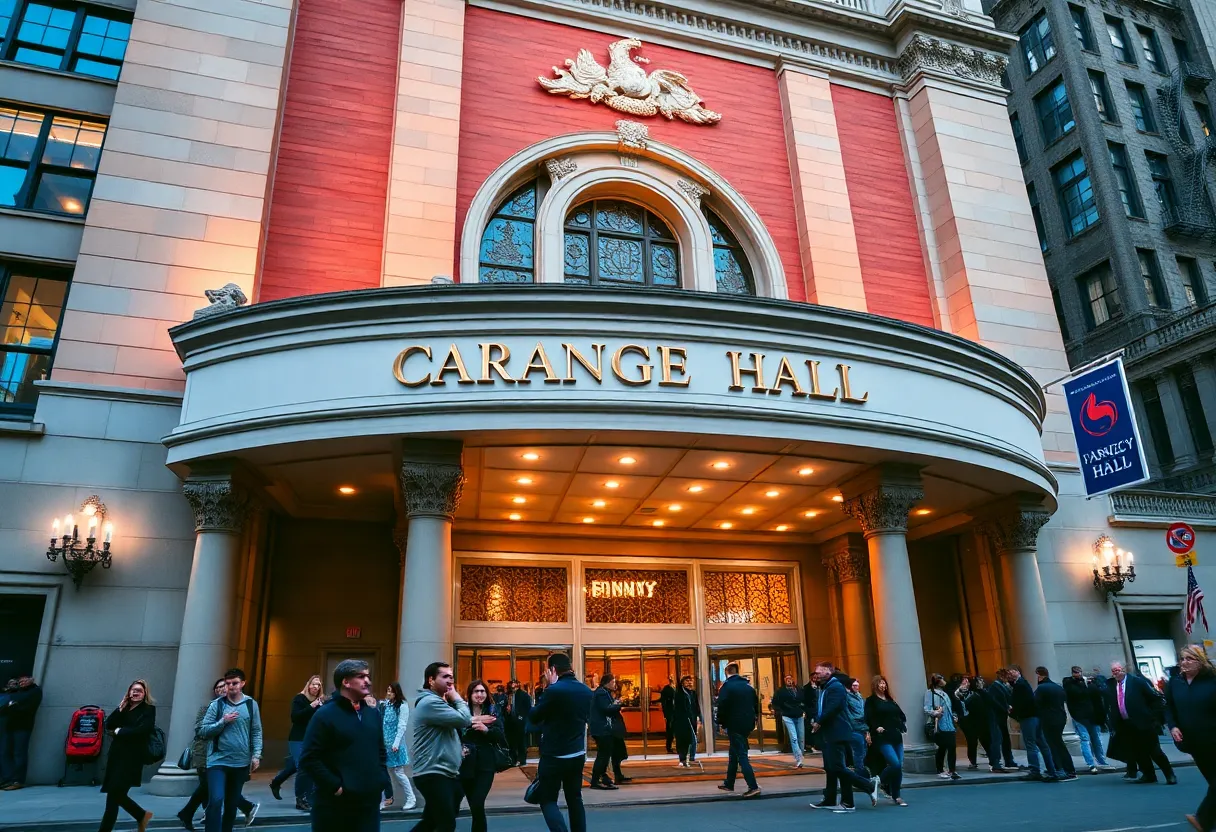News Summary
New York City’s iconic Garment District is reeling from new tariffs imposed by the Trump administration, impacting local businesses and consumers alike. The Alessi sisters, fabric importers, and other industry players are feeling the heat as prices rise and job security dwindles. With the American Apparel and Footwear Association reporting significant reliance on foreign imports, concerns mount about the future of fashion in NYC amid high tariffs that threaten to reshape consumer behavior and local economies.
New York City Faces Fashion Crisis as Tariffs Take Toll on Garment District
New York City, the fashion capital of the world, is experiencing a wave of concern as new tariffs imposed by the Trump administration shake up the apparel industry in its iconic Garment District. This bustling center has long been a hub for fashion lovers and industry insiders alike, but recent changes in trade policies might just change the landscape significantly.
Among those feeling the pinch are Lyn and Lisa Alessi, the dynamic duo behind Alessi International. With a history of selling luxury fabrics since 1989, the Alessi sisters are now faced with significant challenges as their fabric import business grapples with increasing tariffs. They’re not alone in their worries; their customers have been reaching out with questions about how to adapt to this new reality. Concerns about rising prices are palpable across the district.
Understanding the Tariff Scenario
The American Apparel and Footwear Association recently reported that a staggering 97% of clothes and shoes sold in the U.S. actually come from abroad, mostly from countries like China, India, and Vietnam. Now, with the latest tariffs reaching up to 145% on specific Chinese goods and hefty tariffs on imports from Vietnam (46%) and India (27%), the landscape is shifting rapidly. Although tariffs on a number of countries have been suspended temporarily for 90 days, those affecting China remain firmly in place.
This is uncharted territory, as the new U.S. tariffs are being marked as the highest seen in over a century, aiming to boost domestic manufacturing. But while the intention may be noble, the fallout is set to affect both businesses and consumers. The additional import taxes are likely to send prices soaring, which may force shoppers to reconsider their purchasing habits.
What Does This Mean for Consumers?
The Alessi sisters predict that as prices rise, consumers will begin to look for alternative clothing options. To illustrate, a high-end jacket from Veronica Beard could see its price tag balloon from $800 to $1,000. That’s quite the leap, and it’s not just the Alessi business feeling the impact. Nearby, Apparel Production, co-owned by Karen and Teddy Sadaka, has already witnessed factories shuttering as jobs migrate overseas.
Karen Sadaka has noted that the average age of their workers hovers around 50 years old, raising questions about how they will replace experienced personnel when they retire. The full effects of the tariffs on domestic production are still uncertain but are causing a stir among local businesses that are feeling alarmed and confused by the new regulations.
Wider Impacts Across NYC
Medical practices are bracing for rising costs, especially for imported medical devices that aren’t exempt from the tariffs. Thankfully, pharmaceutical imports remain unaffected, but the overall atmosphere is one of anxiety and concern.
The Global Consequences
Worryingly, there’s a potential for international backlash. China could impose a 34% tariff on all U.S. goods, and both Canada and the European Union are weighing their own retaliatory measures. The chaos has left small business owners feeling overwhelmed and unprepared.
Jessica Walker, the president and CEO of the Manhattan Chamber of Commerce, has expressed the rising anxiety felt among small business owners. Many are dealing with the fallout of tariffs that have caught them off guard. It’s a tricky time for everyone, but the hope is that through adaptation and forward thinking, New York City’s apparel industry can weather this storm.
Deeper Dive: News & Info About This Topic
HERE Resources
Additional Resources
- CBS News: Trump Tariffs Raise Costs for NYC Garment District
- Wikipedia: Tariffs
- The New York Times: Tariffs on American-Made Apparel
- Google Search: Trump Tariffs Impact
- The Free Press: Garment District Owners on Trump’s Tariffs
- Google Scholar: Tariffs in the Fashion Industry
- AM New York: Uncertainty for Manhattan Businesses Due to Trump Tariffs
- Encyclopedia Britannica: Tariff
- FingerLakes1: Schumer Warns of NYC Recession Due to Tariffs







